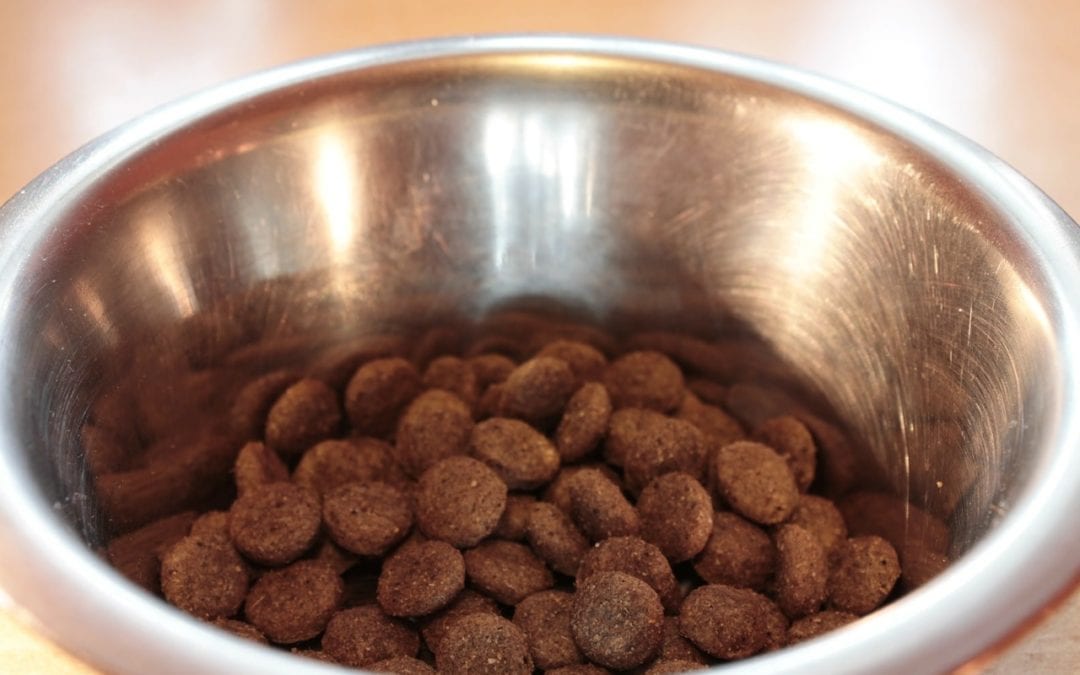In July 2018, the U.S. Food and Drug Administration (FDA) issued an alert regarding a particular type of heart disease in dogs, known as canine dilated cardiomyopathy (DCM), that can lead to heart failure. The alert was based on reports of DCM developing in breeds of dogs not genetically predisposed to this disease and a potential link to certain pet foods containing peas, lentils, other legume seeds or potatoes as primary ingredients. The FDA’s alert also indicated its Center for Veterinary Medicine and the Veterinary Laboratory Investigation and Response Network would be investigating this potential association. Further details of this alert are available at the link below.
https://www.fda.gov/animalveterinary/newsevents/cvmupdates/ucm613305.htm
DCM is more common in large and giant breed dogs, such as Great Danes, Boxers, Saint Bernards and Doberman Pinschers, but less common in small and medium breed dogs (with Cocker Spaniels being an exception). However, the FDA received reports of DCM in Golden and Labrador Retrievers, Whippets, Miniature Schnauzers, a Shih Tzu, a Bulldog and mixed breeds. Veterinary cardiologists reported that these cases appeared to involve a consistent diet of the pet foods described above. These pet foods are often labelled as “grain free” because they use higher levels of legumes and/or potatoes.
Dr. Freeman, a veterinary nutritionist at the Cummings School of Veterinary Medicine at Tufts University, wrote a blog post with excellent information regarding the concern of boutique diets, grain-free diets, exotic-ingredient diets and raw food diets causing DCM in breeds that do not typically develop DCM. Her blog post is available at the link below.
It is still uncertain why the affected dogs are developing DCM. We do know that taurine, which is an essential amino acid, is required for heart health. The dogs affected by DCM who were fed the diets mentioned above had taurine levels ranging from adequate to deficient, but some dogs in both categories responded positively to the addition of taurine to their diet.
Dr. Freeman’s main concern is the marketing that leads to an owner’s decision about a dog’s diet. She is also concerned about our lack of knowledge regarding the development of a balanced diet with novel or exotic ingredients that have not been used historically with canine species. Her recommendation is to choose a diet from a company that has done rigorous research and development and not to read the ingredient list. This may seem counter-intuitive, but ingredients can look unpalatable to the human consumer but be part of a well-balanced diet for your pet.
The companies that employ hundreds of specialists and conduct an abundance of research, including clinical trials, include Royal Canin, Science Diet/Hill’s and Purina (Proplan being their premium diet). These diets can be found at pet food stores and veterinary clinics.
As a side note, I have seen too many cats block from urinary struvite crystals. Obstruction due to the formation of struvite crystals is largely a diet-related issue and is a medical emergency that can lead to death if not treated quickly. My experience is that there is an overrepresentation of “boutique” diets among cats that develop a urinary obstruction due to struvite crystals.
A key takeaway is the importance of nutritional expertise and quality control, rather than just what is new and trendy. Speaking with your veterinarian can help you establish what is in the best interest of your pet’s overall health and well-being.
Happy New Year
Dr. Mark Dilworth

